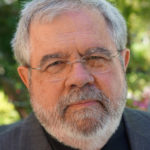We all want to leave 2020 far behind us. For so many people it's been a health and economic disaster. What can we do in 2021 to recover and prosper? I thought I would share this lovely post for a different perspective on the kind of investments we should think about in the coming year - from David on his Raptitude Blog: https://www.raptitude.com/2020/11/three-recession-proof-investments-for-2020/

Tough economic times are no barrier to getting rich, unless you believe monetary wealth is the only kind.
Monetary wealth is the only kind of wealth that has no intrinsic value. It only gives easier access to some of the stuff that actually provides well-being: shelter, tools, social status, freedom from certain kinds of stress and toil, pleasures and conveniences, and opportunities to do what’s meaningful for you.
If piles of money are not forthcoming — or even if they are — why not go directly for the intrinsic value?
Given the hobbled state of the economy, here are three lucrative areas to invest in, requiring no monetary capital. Unlike stocks or mutual funds, they tend to perform better during times of hardship and recession, providing direct gains to well-being in both the short- and long-term.
1. Friendships
Regardless of the era, friendships are a much stronger investment than gold, bitcoin, or even land. They retain their value regardless of market conditions, and return steady dividends. Their value rises when life gets especially tough, when you’re bored or sad, or when you need to move a couch down some stairs.
Strengthening your relationships improves your position in almost every aspect of life. They provide meaning, support, entertainment, and a sense of being valued. Good friends keep our minds sharp, and strengthen our self-respect. Friendships can even open doors to jobs, clients, and other opportunities for economic wealth.
How to invest:
The basic principle is to make regular contact – a call, a text, an invitation – but in ways you know that person would appreciate. Not everyone appreciates late night phone calls, or invites to monster truck rallies (but some do – only a friend would know.) On your own initiative, offer some of what you know the other person gets out of knowing you.
Along with investing in existing friendships, you can start new ones. It’s a myth that making friends as an adult is virtually impossible. That idea will get its own post, but in the meantime here’s the punchline: you make friends out of acquaintances.
Friendships are born only when one acquaintance takes a certain kind of risk, which is to invite the other person to something. It could be anything – a walk, a poker game, an exchange of soup recipes, whatever. If you both enjoyed it, the precedent for such invitations has been set, and you’ve graduated from acquaintancehood.
Returns and dividends:
Fun. Companionship. A feeling of being valued and even understood. Help and advice. Respite from loneliness. Compelling evidence that humans can be extremely wonderful creatures. Perspective. Knowledge. More friendships.
2. Fitness
I don’t like the word fitness, because the industry going by that name has convinced us that fitness is the pursuit of altering your body’s shape, rather than improving its functionality.
However, I don’t have a better word for the quality I’m referring to, which is the aspect of your health you can improve with physical activity. In this sense, fitness is pure wealth. Everyone already has some fitness, and you can get more.
Regularly doing strenuous things makes your body work better and feel better. When you gain more fitness, walking around feels better. Waking up feels better. Standing at the bus stop feels better. Really, doing anything feels better, and the body malfunctions less.
Looking better is an incidental benefit, which has more to do with how you feel moving around in the world than with any associated shape-changing.
How to invest:
A life-altering investment in fitness doesn’t have to be hard or unpleasant, only consistent.
Since the fitness industry is bizarrely focused on making drastic cosmetic changes, ignore everything they say. Make a short, do-at-home routine made of lifts and movements you like best, and do it the same time every day.
Doing it daily is the secret to serious wealth gains here. It’s easier to work out daily than three or four days a week, and twice as beneficial.
Pick anything for your movements. If you like pushups, do them. If you don’t mind leg raises, do that. Fifteen or twenty minutes’ worth of vigorous work will do. Put on a podcast or TV show if you want. The work should be just enough to challenge but not demoralize you.
Once you start falling in love with feeling great, ramp things up as desired. Maybe you’ll want to run marathons or work toward the one-armed chinup, or maybe not. Let those desires emerge on their own. Feeling great comes long before that level of investment.
Returns and dividends:
Feel better all the time. Better sleep. Fewer doctor visits. Less health anxiety. Sense of agency and self-reliance. A distinct sense of living with less regret. Confidence, of both the visible and invisible kind.
3. Attentional Skills
I’m starting to avoid the word mindfulness too, because it doesn’t mean what anyone assumes. It does not mean doing things slowly, thinking of yourself as mindful, or stopping to smell roses.
Rather, it refers to specific skills relating to using your attention. Since you’re always using your attention, being able to use it more skillfully can transform a person’s life.
I’m an advocate of Shinzen Young’s way of defining mindfulness, as a combination of three simple attentional skills: concentration, sensory clarity, and equanimity.
Concentration is your ability to keep your attention where you want it, the main benefit of which is obvious. Sensory clarity is the ability to discern detail in your sense experience, deepening your enjoyment and understanding of everyday experience. Equanimity is the ability to allow experience to come and go without resistance or clinging.
Like fitness and friendships, attentional skills are another asset you already have some of, but you can have way more, and the quality-of-life improvements one can make are astounding. These skills lead directly to less suffering and more fulfillment, no matter what happens.
How to invest:
Daily meditation, even just a few minutes’ worth. Meditation is just time dedicated to strengthening attentional skills, and discovering how your relationship to the world changes as a result. Don’t let anyone tell you otherwise.
As with fitness, start with a modest practice you enjoy enough to do consistently, before you try to be an Olympian at it. Virtually all meditation methods strengthen all three skills, but the instruction styles vary immensely, from technical and explicit (John Yates, Shinzen Young) to obtuse and mystical (traditional Zen).
All you have to do is pick one that appeals to you, try it for a while, and don’t forget to ask questions. [There are plenty of suggestions in this post if you would like a starting point.]
The dividends:
Emotional stability. Meaning. Connection to others and the environment. Keener intuition. Growing freedom from vice and reactivity. Frequent moments of peace and gratitude. A world that seems quieter. An easier time being yourself.
***
from Raptitude.com
https://www.raptitude.com/2020/11/three-recession-proof-investments-for-2020/






















